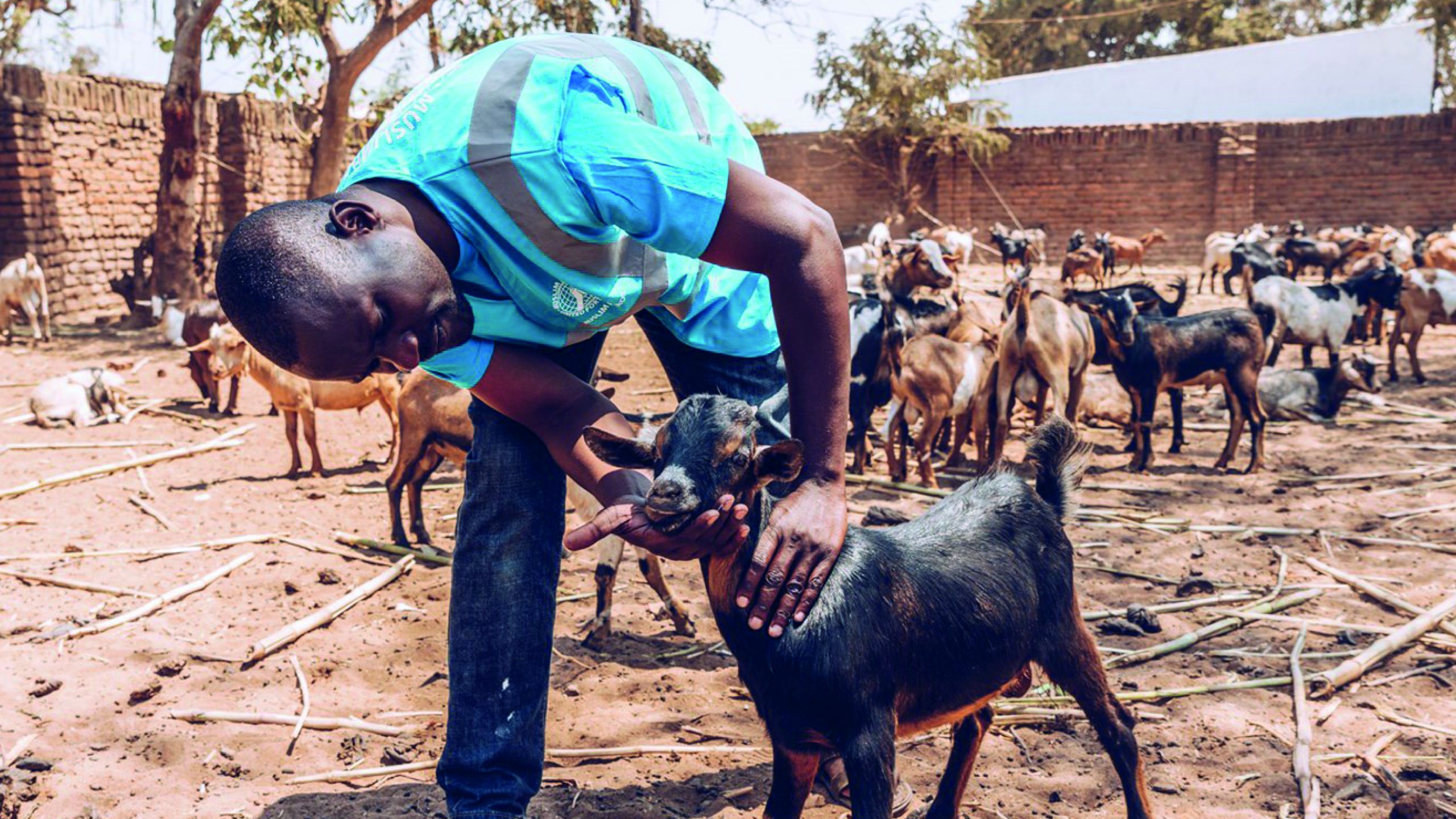By Yasrab Shah — Muslim Hands Fundraising Director
Qurbani or Udhiya, the annual sacrifice of an animal offered to Allah (swt) on the days of Eid al-Adha, is not simply the slaughtering of an animal and the distribution of its meat. The word ‘Qurbani’ is derived from the Arabic, ‘qurban’, which has its root in the Arabic word ‘qurb’ – meaning ‘nearness.’ The purpose of offering Qurbani is to draw near to Allah. Through Qurbani, we reaffirm what we sometimes forget in the hustle and bustle of everyday life – that we completely submit to Allah, and we are willing to sacrifice whatever is asked of us to be close to Him and gain His pleasure, just as Prophet Ibrahim (as) did thousands of years ago:
“And when he (Ismail (as)) reached with him [the age of] exertion, he said, ‘O my dear son, indeed I have seen in a dream that I [must] sacrifice you, so see what you think.’ He said, ‘O my dear father, do as you are commanded. You will find me, if Allah wills, of the steadfast.’” [The Noble Qur’an, 37:102]
As with any fard (according to the Hanafi school) or at least highly recommended act, Allah always provides us with the opportunity to seek even more blessings as we seek to be amongst the elite of the believers. But how can we benefit from these with our sacrifice? Now is a good time to look at the Sunnah of our beloved Prophet (saw) who was sent to us as the ultimate role model in seeking Allah’s pleasure:
“There is indeed an excellent model for you in the Messenger of Allah [saw] – for the one who has hope in Allah and the Last Day and remembers Allah profusely.” [The Noble Qur’an, 33:21]
What did the Prophet (saw) do after performing his own sacrifice?
Abu Talhah (ra) reported, ‘The Prophet (saw) sacrificed for the one who could not sacrifice from his ummah, one who bore witness to the Oneness of Allah and [his] Prophethood.’ [At-Tabarani and Ahmad]
The mercy and generosity of the Messenger of Allah (saw) was such that in his every action, he considered his Ummah, especially the most vulnerable amongst them. Not only did his extra Prophetic or Sunnah Qurbani ensure that even more people received fresh meat on the days of Eid Al-Adha, but it allowed families who were not otherwise able to share in the blessings of the sacrifice to draw closer to their Lord as he sacrificed on their behalf.
This tradition was of such importance to the Prophet (saw) that he advised his cousin and son-in-law, Imam Ali (ra) to follow it:
On the authority of Hanash (ra) who said, ‘I saw Ali (ra) sacrificing two rams; So I asked him, “What is this?” He replied, “The Messenger of Allah (saw) enjoined upon me to sacrifice on his behalf, so that is what I am doing.”’ [Abu Dawud]. This was also a Sunnah his Sahabah used to follow, as Anas bin Malik (ra) said, ‘The Prophet (saw) used to sacrifice two rams, and I also sacrifice two rams.’ [Al-Bukhari]
The forgotten Sunnah
And yet, today this beautiful act of generosity is all but forgotten. How many of us offer a Sunnah Qurbani when giving our own sacrifice? How many are even aware of this Sunnah? As many of us know, there are great rewards in following the Prophet’s actions, and what an opportunity we have every year to make one extra sacrifice for the Ummah just as the Messenger of Allah (saw) did. The extra sacrifice can be given to the needy in the same way that Zakat al-Fitr is given at the end of Ramadan, so that the most disadvantaged communities across the world can enjoy a healthy, filling meal with fresh meat on the days of Eid al-Adha.
Why give a Sunnah Qurbani?
On the authority of Kathir ibn ‘Abdullah (ra) who narrated from his father that his grandfather said, ‘I heard the Messenger of Allah (saw) say, “Whoever revives a Sunnah of mine that dies out after me, he will indeed have a reward equivalent to that of those among the people who act upon it, without that detracting from their reward in the slightest…” [Ibn Majah]
Giving a Prophetic Qurbani is a special act because it follows the Sunnah of our beloved Prophet (saw). There is wisdom in everything the Prophet (saw) did and immense reward in reviving his Sunnah. Furthermore, giving an extra Qurbani means even more families in need will benefit. In poverty-stricken communities, meat is an unaffordable luxury and so it is a joyous occasion when they can enjoy the generosity of a Sunnah Qurbani.
On the authority of Anas (ra) that the Prophet (saw) said, ‘None of you truly believes until he loves for his brother what he loves for himself.’ [Al-Bukhari and Muslim]
For the people who have the means to give on behalf of the Ummah, this hadith holds much importance. Millions of Muslims who fall below the threshold (Nisab) do not have the opportunity to offer a sacrifice themselves. They do not get to participate in this religious ritual that commemorates the sacrifice of Prophet Ibrahim (as). By giving on behalf of these people, you are not only doubling your reward and your impact, but you are also ensuring that they are involved in the blessed festivities of Eid al-Adha.
Both the traditional and Prophetic Qurbanis remind us of the legacy of our Prophets and the message they delivered. They teach us to sacrifice from our worldly wealth in order to invest in our Hereafter, just as the Qur’an commands.
By reviving this forgotten practice of the Sunnah Qurbani, not only are we fulfilling the basic tenants of our faith, but we are striving to go beyond that, just as the Prophet (saw) did and encouraging mercy and unity in our Ummah. What better way to reap the immense rewards of Eid al-Adha this year?


















